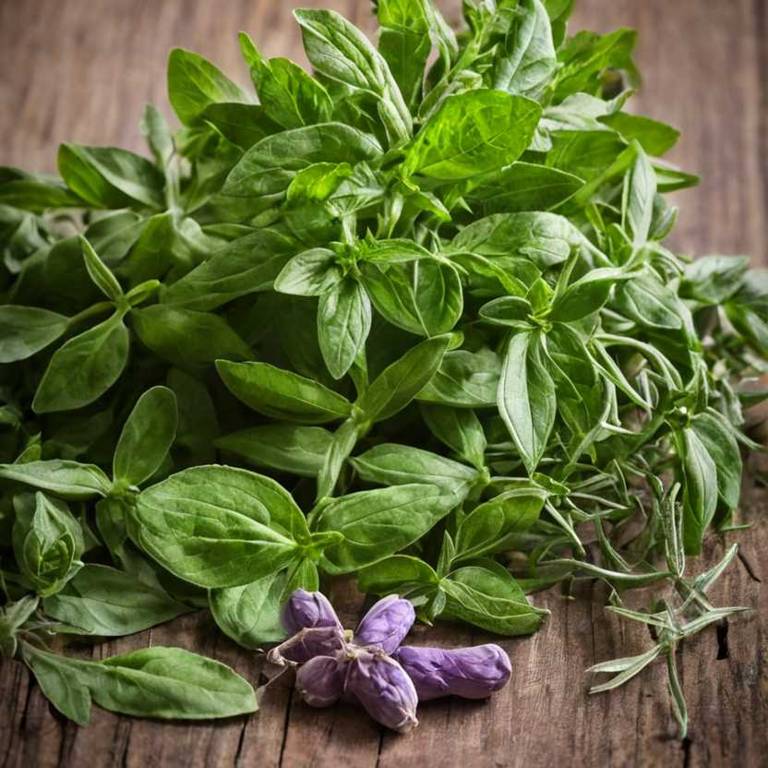By Leen Randell
Updated: Jul 06, 2024
What Are The Medicinal Properties Of Prunella Vulgaris (Selfheal)?

Prunella vulgaris, also known as selfheal, has health benefits such as reducing inflammation and improving immune function.
The medicinal constituents of Prunella vulgaris include flavonoids, terpenoids, and phenolic acids, which contribute to its therapeutic effects. Medicinal preparations of selfheal include teas, tinctures, and infusions, often used to treat wounds, fever, and respiratory issues. Common side effects include allergic reactions, skin irritation, and gastrointestinal upset.
To use selfheal safely, individuals with allergies or sensitivities should consult a healthcare professional before consumption.
This article explains the health benefits, active constituents, medicinal preparations, possible side effects, and precautions related to Prunella vulgaris.
What are the health benefits of Prunella vulgaris?
Prunella vulgaris, also known as selfheal, has health benefits such as reducing inflammation and improving wound healing.
The plant contains compounds like flavonoids and terpenoids, which have antioxidant and antimicrobial properties. Studies have shown that selfheal extracts can also exhibit antibacterial and anti-inflammatory activities, making it a potential treatment for skin conditions and infections.
Its use has been traditionally recognized in herbal medicine.
Here's a detailed article about the 10 health benefits of Prunella vulgaris.
What are the active constituents of Prunella vulgaris?
Prunella vulgaris, also known as selfheal, has active constituents such as iridoids, flavonoids, and rosmarinic acid.
The iridoids, including aucubin and prunellin, possess anti-inflammatory properties, while the flavonoids, particularly quercetin and kaempferol, exhibit antioxidant and antimicrobial activities. Rosmarinic acid, a polyphenolic compound, has been shown to have anti-inflammatory and immunomodulatory effects, contributing to the plant's potential therapeutic applications.
These constituents are responsible for its traditional uses in folk medicine.
Here's a detailed article about the 10 active constituents of Prunella vulgaris.
What are the medicinal preparations of Prunella vulgaris?
Prunella vulgaris, also known as selfheal, has medicinal preparations such as teas, tinctures, and infusions that are used to treat various health issues.
The plant's leaves and flowers are rich in flavonoids, phenolic acids, and other bioactive compounds, which are believed to possess anti-inflammatory, antimicrobial, and antiviral properties.
These preparations are commonly used to alleviate symptoms of colds, sore throats, and skin irritations, as well as to boost the immune system and aid in wound healing.
Here's a detailed article about the 10 medicinal preparations of Prunella vulgaris.
What are the possible side effect of using Prunella vulgaris improperly?
Improper use of Prunella vulgaris, also known as selfheal, increases the chances of experiencing side effects such as allergic reactions, digestive issues, and interactions with medications.
Some people may also experience dizziness, headaches, or stomach upset. Additionally, using Prunella vulgaris in high doses or for extended periods can lead to kidney damage and electrolyte imbalances.
Pregnant or breastfeeding women should consult a healthcare professional before using the herb.
Here's a detailed article about the 10 most common side effects of Prunella vulgaris.
What precautions to take when using Prunella vulgaris medicinally?
Before using Prunella vulgaris, also known as selfheal, for medicinal purposes, you must take precautions such as consulting with a healthcare professional, especially if pregnant, breastfeeding, or taking medications.
Selfheal can interact with blood thinners, diabetes medications, and certain supplements. Additionally, individuals with allergies, autoimmune disorders, or weakened immune systems should exercise caution.
Proper identification and preparation of the plant are also crucial to avoid adulteration and contamination.
Here's a detailed article about 10 precautions to take when using Prunella vulgaris.